World Ocean Day 2024 with Marine Dynamics and Dyer Island Conservation Trust

As the world unites to celebrate World Oceans Day under the theme of "Catalyzing Action for Our Ocean and Climate," there's no better time to reflect on our collective responsibility to protect and preserve these vital ecosystems. At Marine Dynamics, nestled in the breathtaking beauty of Gansbaai, and in collaboration with Dyer Island Conservation Trust, our commitment to marine conservation goes beyond offering unforgettable shark cage diving and whale watching; it's about making a real change in safeguarding the future of our oceans through research, education, advocacy, and addressing the critical link between ocean health and climate change.
Research: Exploring the Depths
One of the pillars of our conservation efforts is our dedication to scientific research. Through collaboration with leading marine biologists and researchers in South Africa and beyond, we have published 40 peer-reviewed scientific papers. We delve into the complex lives of sharks, whales, penguins, and other marine species that inhabit our waters. From studying behaviour patterns, tracking migration and population trends, to conducting necropsies to determine the cause of death, our research initiatives shed light on crucial aspects of marine life, aiding in their better understanding and protection.
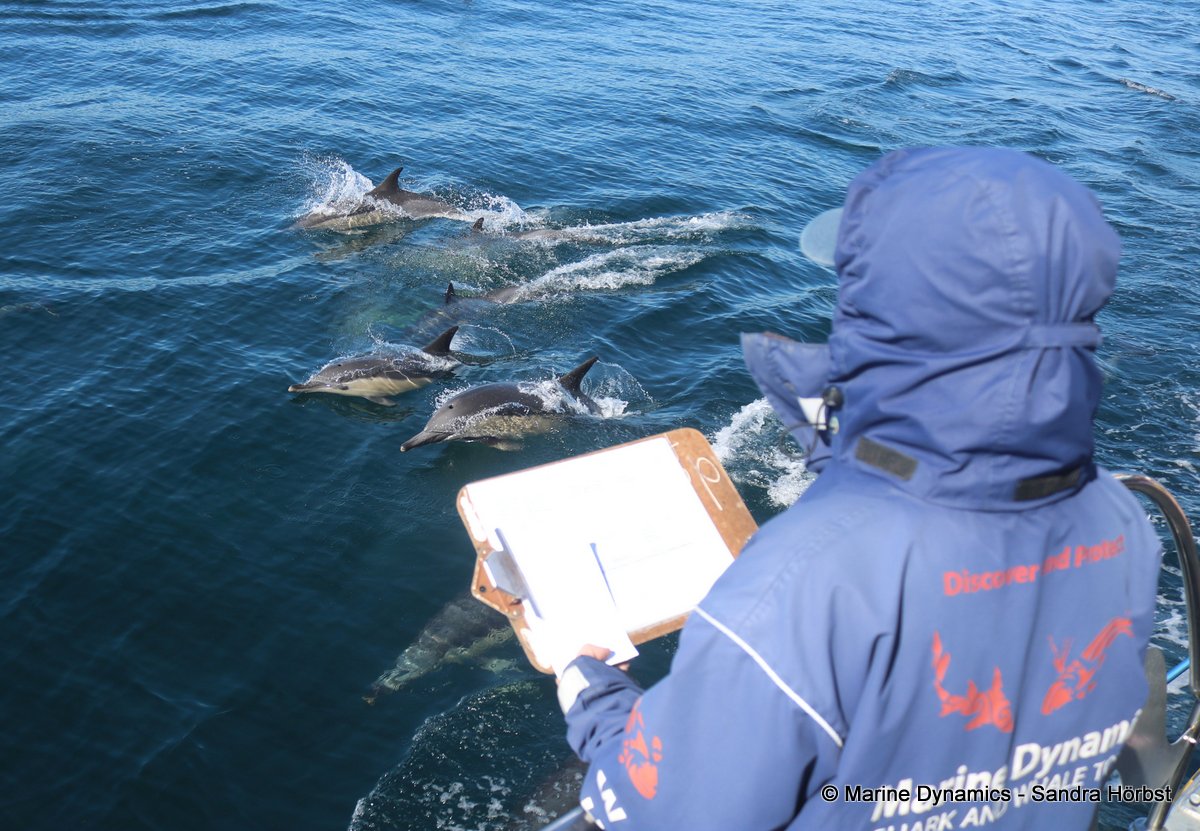
Rehabilitation: Not on Our Watch
The Dyer Island ecosystem boasts a diverse array of species, including the endangered African Penguin, Cape Fur seal, migrating whales, dolphins, sharks, and the iconic Orca. Despite its quirky and lovable traits, the African Penguin faces extinction due to historical factors such as egg harvesting and guano removal, along with contemporary challenges like marine pollution and overfishing. The Dyer Island Conservation Trust plays a pivotal role in conservation efforts, particularly through initiatives like the successful nest project and the African Penguin and Seabird Sanctuary, providing critical care for injured and sick birds. Through international partnerships and ongoing scientific research, the Trust aims to address habitat loss and improve the survival prospects of endangered species. The sanctuary's outreach efforts garner global attention, serving as a beacon of hope for the future of marine conservation and wildlife rehabilitation.
Education: Empowering the Next Generation
Education is an undeniable cornerstone of effective conservation, which is why we're passionate about inspiring and empowering the next generation of ocean ambassadors. The Dyer Island Conservation Trust’s Environmental Education Programme, known as DEEP, works with dedicated groups of young learners from disadvantaged backgrounds over three years to monitor and evaluate the impact and growth of each learner. The aim is to expose these young learners to the field of science and conservation, serving as a precursor for future skills training. Through various educational programs and outreach initiatives, we nurture a profound appreciation for marine life and the importance of conservation among interns, volunteers, guests, and communities alike.
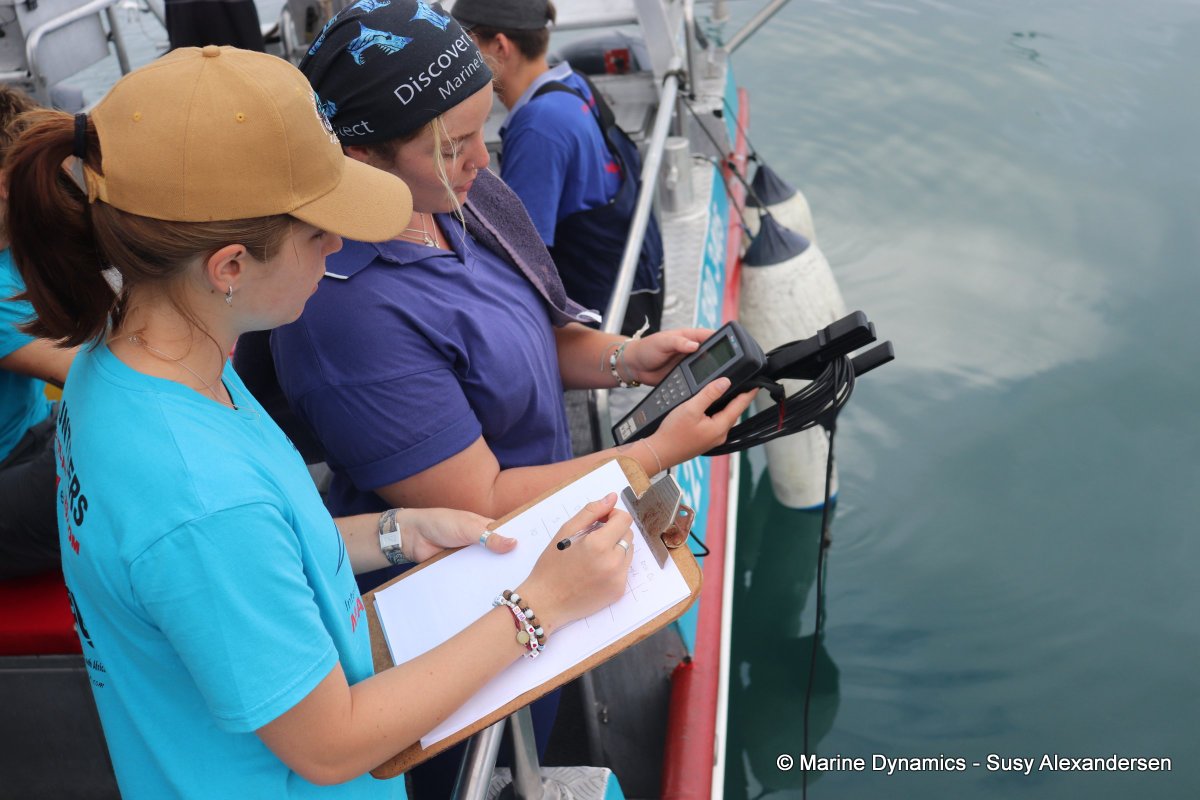
Marine Pollution: Addressing the Issue of Ocean-bound Waste
Marine pollution is a global concern, and Marine Dynamics and The Trust witness its impacts firsthand as they deal with all animal strandings in the Overstrand area. The Trust has been a leader in South Africa, with the latest Project Storm addressing the issue of ocean-bound waste via stormwater drains. The community of Gansbaai has actively participated in monthly beach clean-ups, resulting in the removal of thousands of kilometres of discarded fishing line from the coastline. The fishing line bin project, initiated by the Trust, is spread along the entire South African coastline, aiming to educate about the threat of marine entanglement and responsible discarding of fishing line to minimise this threat.
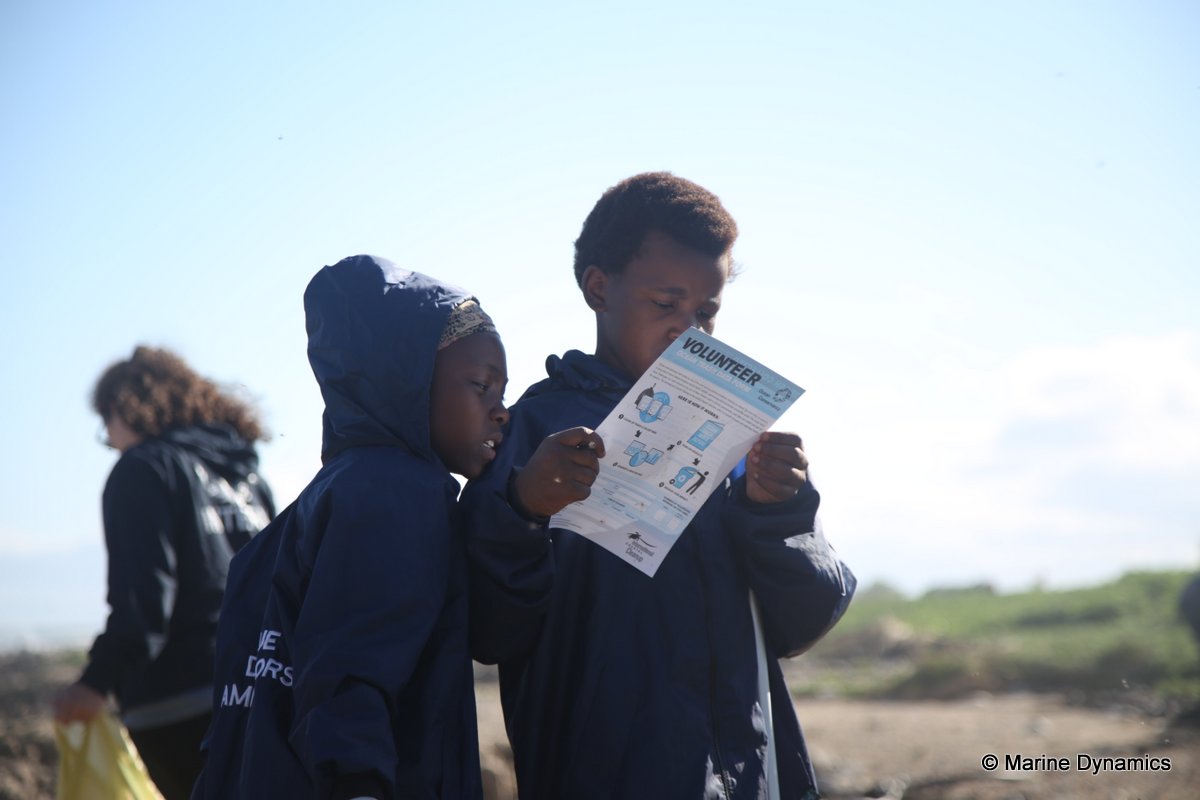
Policy Advocacy: Making Waves for Change
But our conservation efforts don't stop there; we're actively engaged in advocating for policies that ensure the protection and sustainable management of our marine resources. Whether advocating for necessary policies to government agencies or partnering with like-minded organisations, we're dedicated to taking action that prioritises the health and longevity of our oceans. This non-consumptive ocean economy provides vital employment to the local population, and the resulting stream of visitors supports guesthouses, restaurants, and shops. In this case and in all, the value of the species is worth far more alive than dead. Sharks are living examples of majesty, attracting thousands of visitors seeking an unforgettable experience that also contributes positively. The groundbreaking research of the team has contributed to population studies and behavioural studies that can influence bather safety programmes and ultimately better protect this vulnerable species. The team is at the forefront of changing perceptions and advocacy for sharks – and can influence government rules and regulations with decades of data. Our goal is to work towards better protecting the Dyer Island ecosystem and getting it proclaimed as a Marine Protected Area. By raising our voices and pushing for change, we're working towards a future where our oceans thrive for many years to come.
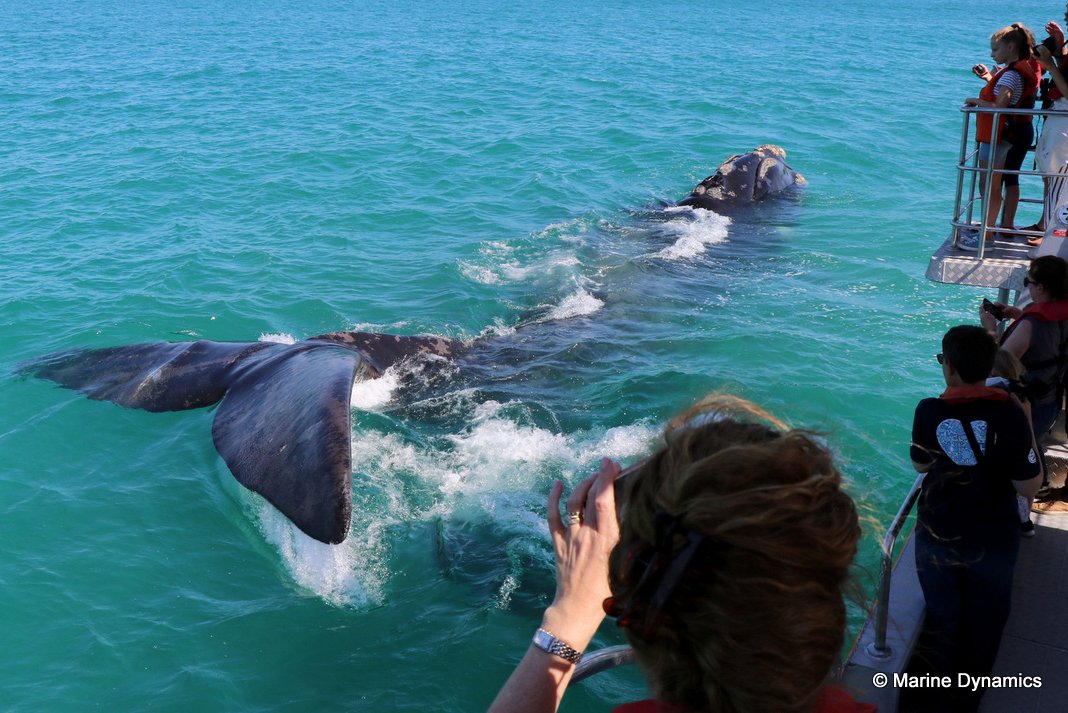
Celebrating World Oceans Day
In these unprecedented times, conservation cannot be relegated to a ‘nice to have’ – it is essential to the continued education of generations of children who inherit the consequences of environmental decisions made by brands, the government, businesses, and industry. It will guide how we develop and adapt as part of nature and learn to thrive as part of a whole and beautiful system. The fight for balance and the conservation of key species is far from over.
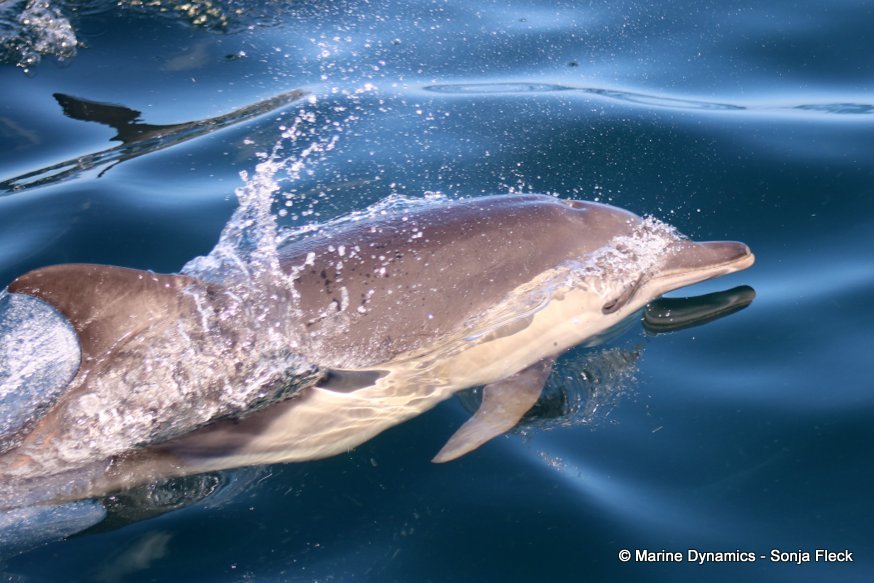
As we celebrate World Oceans Day, we invite you to join us in our mission to conserve and protect these invaluable ecosystems. Whether you're joining us for trips to enjoy sharks, whales, dolphins, seals, and penguins; participating in our intern and volunteer programmes; visiting the African Penguin and Seabird Sanctuary, or simply spreading awareness about the importance of marine conservation, your decision makes a difference.
Happy World Oceans Day!
_1420x587_crop_80.jpg)






